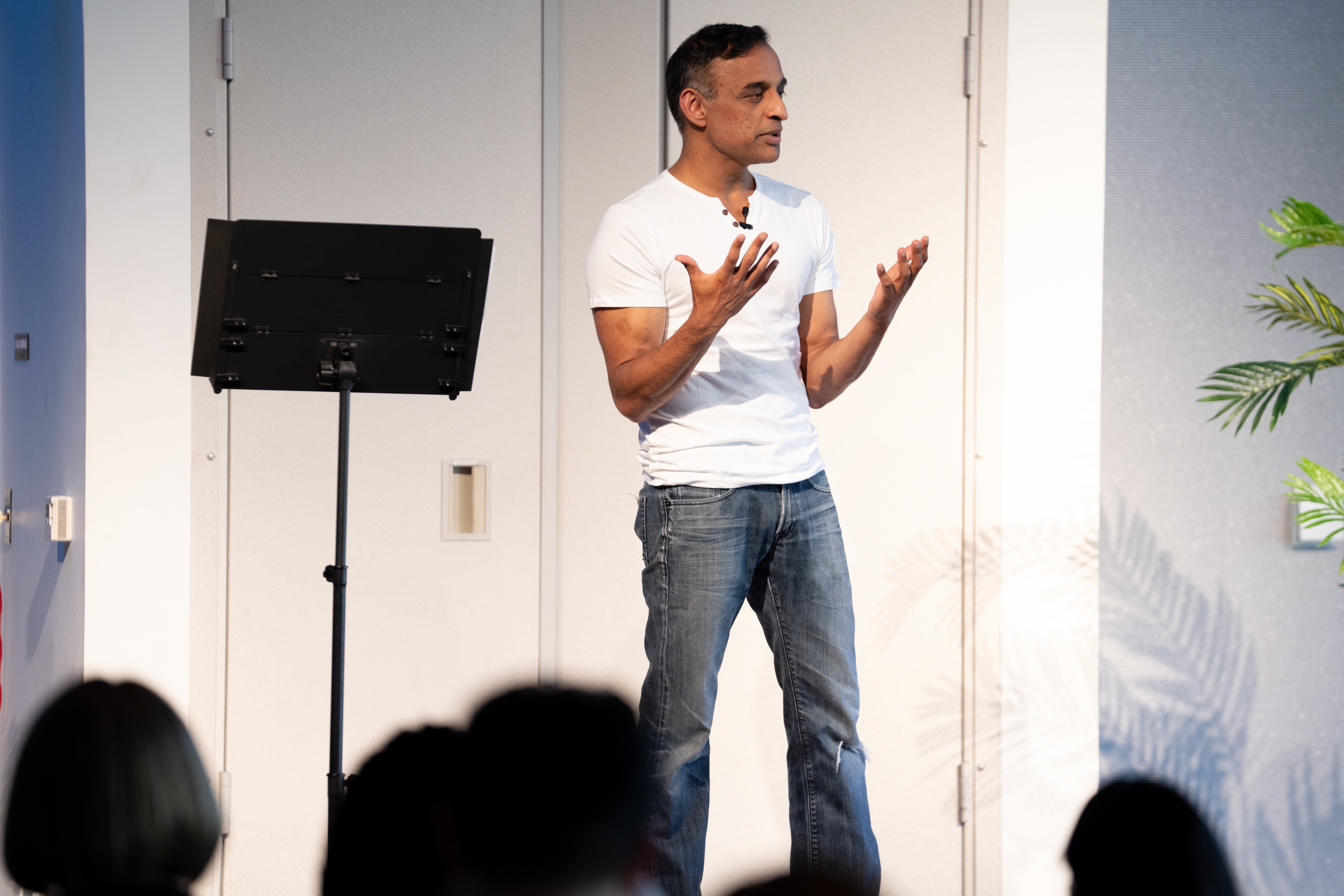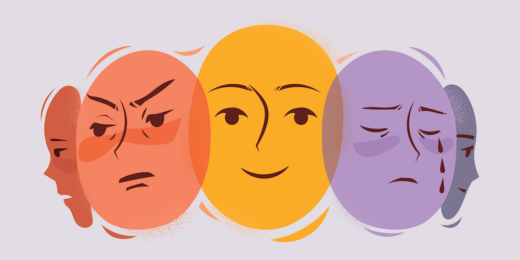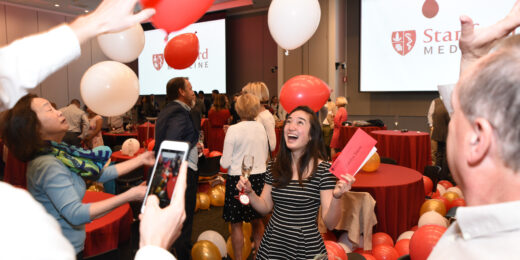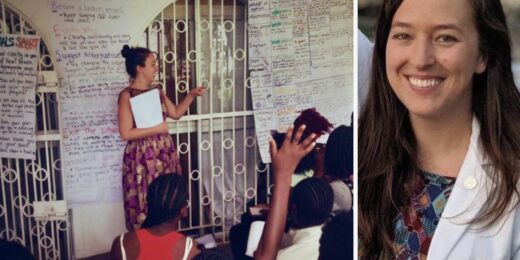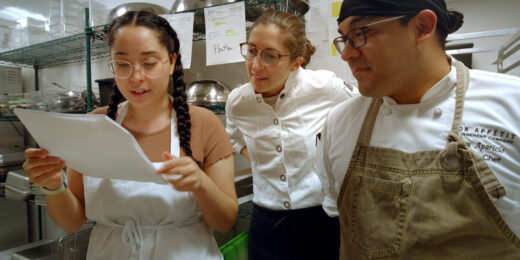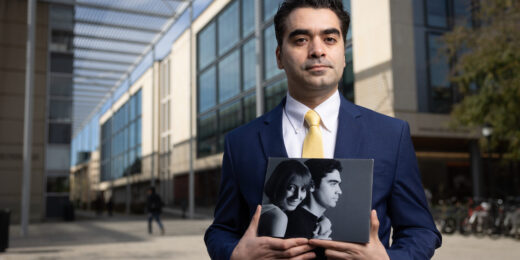New Stanford Medicine podcast, Health Compass, focuses on the crucial research and important researchers moving health topics forward.
Category: Medical Education
Biodesign cultivates community partnerships to broaden understanding of health equity
Biodesign program aims to ensure all trainees have a better understanding of health equity and appreciate the ways in which new technologies can widen or narrow the gaps in access to care.
A doctor, his cancer journey and a uniquely teachable moment
Bryant Lin has taken his diagnosis of stage IV ‘never-smoker’ lung cancer, which disproportionately affects those of Asian descent, and turned it into a medical school course. He hopes the world takes notes along with the students and Stanford Medicine community.
From ballet to medicine, a love of stories has driven this bioethicist
Stanford Medicine bioethicist Tyler Tate found high levels of success in ballet, miming, acting, fencing and collegiate tennis. But his love of storytelling ultimately led him to medicine.
How mixing music and medicine keeps this doctor grounded
The Unconventional Path of Stanford Medicine hematologist Tamara Dunn had her eyeing a career on Broadway.
Paying back her people: New doctor has plans to return to her African village
Bongeka Zuma, graduate of Oprah Winfrey’s academy and Stanford School of Medicine, discusses her plans to advance medical care in her hometown.
How the tobacco industry began funding courses for doctors
Earlier this year, the largest tobacco company in the world paid millions to fund continuing medical education courses on nicotine addiction —16,000 physicians and other health care providers took them.
Story Rounds inspires real talk by doctors about their toughest work
When physicians open up, good things happen — such as when Stanford Medicine’s Jay Shah shared his experience of finally processing the trauma that accompanies the job of a surgeon.
How a cultural exchange from Palo Alto to rural India is advancing perinatal health
The goal of a decade-old program started by Stanford Medicine's Nilima Ragavan is to foster the sharing of lessons and evidence-based best practices between clinicians in the U.S. and India.
Serious talk about moods with bipolar disorder expert Po Wang
Often misunderstood and undertreated, bipolar disorder has received close attention from Stanford Medicine clinicians and researchers for more than 30 years.
Match Day 101: How does the medical residency match work?
Graduating medical students go through an unusual springtime ritual known as Match Day to find out where they’ll continue their training. Here’s everything you wanted to know about the big day.
How personal experience forged this student’s passion for combating gender-based violence
Over the past decade, Stanford Medicine student Lillie Reed has dedicated her life and academic career to preventing violence and helping victims heal from the resulting trauma.
PA student, a cancer survivor, rolls with the punches
She was a first-year PA student at Stanford Medicine when an MRI scan revealed that Melanie Shojinaga had a brain tumor.
A hunger to help people brought her to both surgery, cooking
Carlie Arbaugh is dedicated to both surgery and cooking because they demand meticulous attention to detail and the ability to think on your feet.
How the death of his wife drives data scientist to improve the system
In his grief over losing his wife, Amir Bahmani realized how much data science could impact medicine and potentially save lives.
At the intersection of science and humanity, he found a sweet spot
Medicine has been the way of connecting both of Brian Smith's passions. “With medicine I could have the intellectual curiosity, but also the chance to talk with people and enjoy the human experience.”









